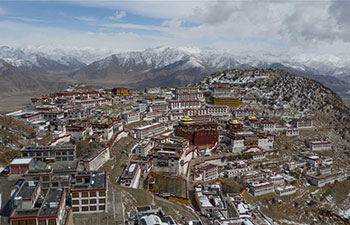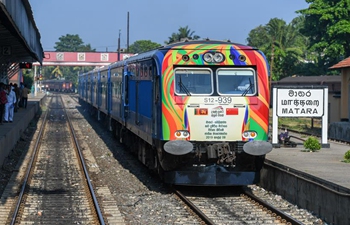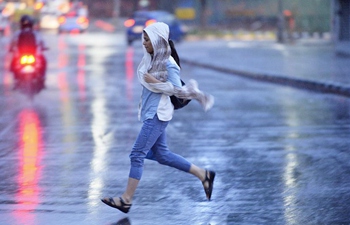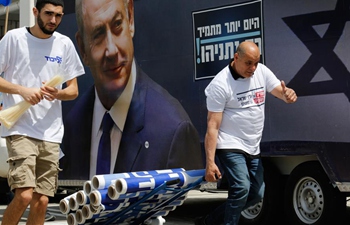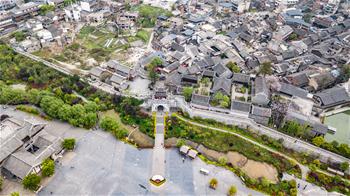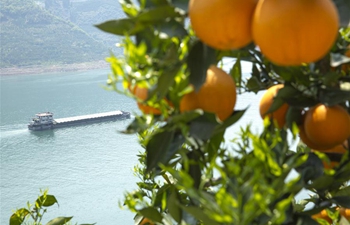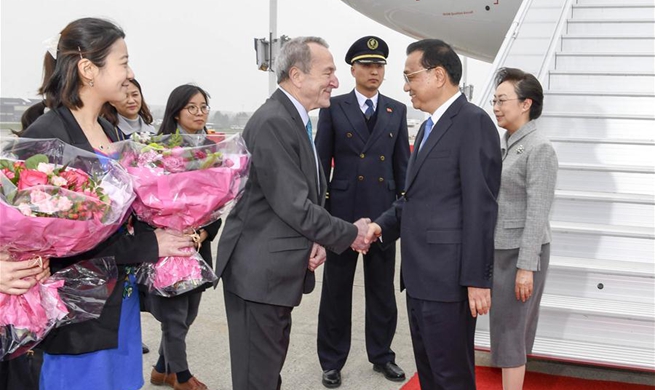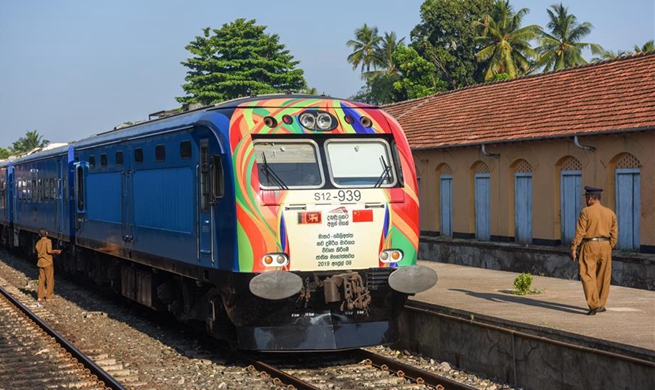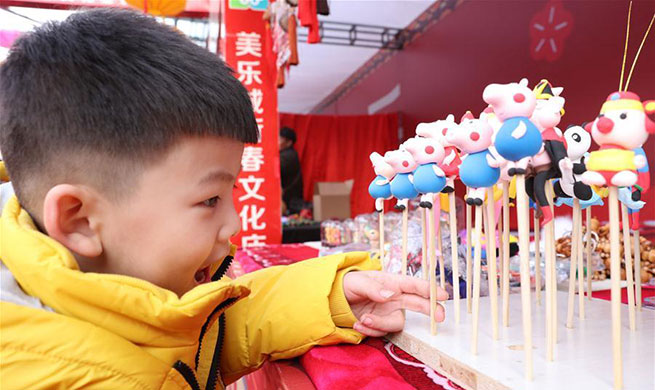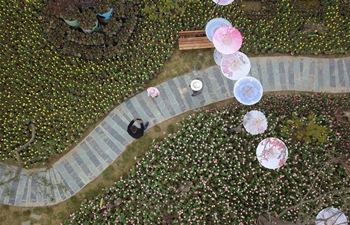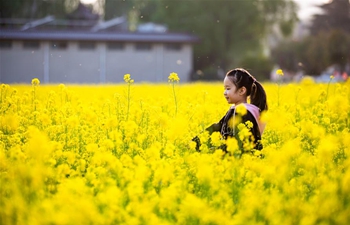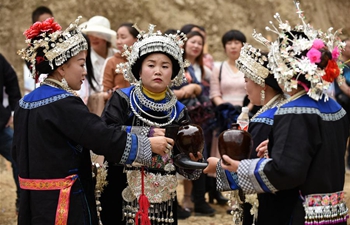by Keren Setton
JERUSALEM, April 9 (Xinhua) -- Israelis began voting Tuesday in a general election to select the country's 21st parliament and government.
Over 6 million Israelis are eligible to vote.
The last elections were held in 2015 with a voting rate of 72 percent, which is expected to remain this time.
There are 120 seats in the Israeli parliament, the Knesset. Incumbent Prime Minister Benjamin Netanyahu, head of the Likud party, is expected to lead the right-wing bloc.
In Israel, if a party has never won 61 seats, it will need to build a coalition. It will be difficult, however, for the right-wing bloc to form a coalition with only slim majority in parliament.
A record number of 42 parties are running for seats this year, with a new threshold level of 3.25 percent.
Here are the main parties running in the race:
Likud
Led by Netanyahu for over a decade, the Likud is the biggest party in Israel's right-wing bloc. Although the party's official documents are vague, party members have repeatedly voiced their opinion against the establishment of a Palestinian state and have promoted settlement expansion in the West Bank.
In a recent TV interview, Netanyahu promised he would officially annex the Jewish settlements in the West Bank, a move to woo voters in the elections but likely to spark international criticism.
The Israeli leader has also held a tough stance against Iran, Israel's arch-rival, which was generally accepted by all political parties.
Netanyahu is considered by many in Israel as a master of political maneuvers. But this time, he was haunted by the scandal of three possible corruption indictments.
Blue and White
Headed by former Chief of General Staff Benny Gantz, Blue and White unites Gantz and centrist party Yesh Atid, which was headed by former journalist and Finance Minister Yair Lapid.
Campaigning for "clean politics," it seems that the Blue and White differs from Likud in stances on Israeli democracy and security issues.
Gantz leads a trio of three former generals with Lapid. While Gantz has been steadily leading polls ahead of Likud, it is unlikely for him to form a coalition. The party has vowed not to sit with Netanyahu as long as allegations over him remain.
Labor
Headed by Avi Gabbay, the Labor party was the largest and dominating one in the country. At the beginning of the election campaign, the party has barely crossed the threshold line but with a sleek social media campaign and a diverse team of experienced parliamentarians, they seem to have recovered in the polls.
The party said it will recommend Gantz to form the next coalition.
Zehut
As an ultra-right wing party headed by Moshe Feiglin, Zehut might be a surprise of the election. At the beginning of the campaign, the party did not cross the threshold line but in recent weeks, they are expected to win at least six seats in the Knesset.
Advocating for extreme free market policies, Zehut completely denies any Palestinian rights of territories in the West Bank or elsewhere. But its main ticket throughout the campaign, and the one thought to have brought it to excel in the polls, is the complete legalization of marijuana.
Although Feiglin would be considered a shoe-in to recommend Netanyahu as the candidate to lead the next coalition, he has refused to commit himself to any party or bloc.
The New Right
An offshoot of the former Jewish Home party, the New Right is headed by Education Minister Naftali Bennett and Justice Minister Ayelet Shaked.
Polls showed they are expected to win about six seats and they have said they will recommend Netanyahu as the next Prime Minister.
Shaked has vowed to continue to limit the influence of the Israeli Supreme Court, and Bennett is coveting the defense portfolio, promising a tougher stance against the Hamas movement in the Gaza Strip.
Shaked and Bennett are staunch opposers of a Palestinian state and supporters of full Israeli annexation of the West Bank.
Hadash-Taal
This party is expected to be the largest party representing the Arab population in Israel. Led by prominent Arab-Israeli politicians, Ahmed Tibi and Ayman Odeh, the party is expected to win approximately eight seats.
Traditionally, Arab parties do not join coalitions and they are unlikely to recommend any party leader.




